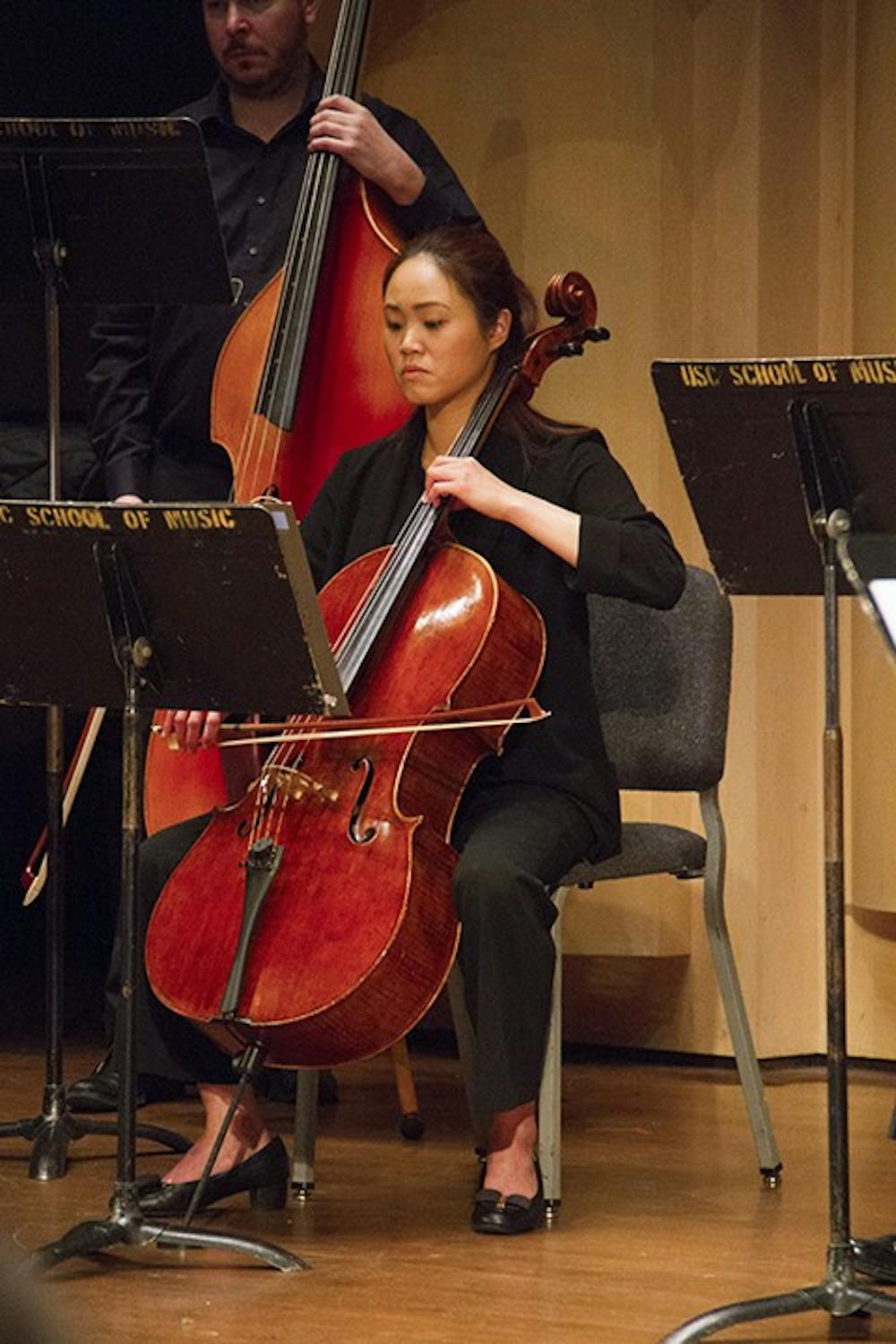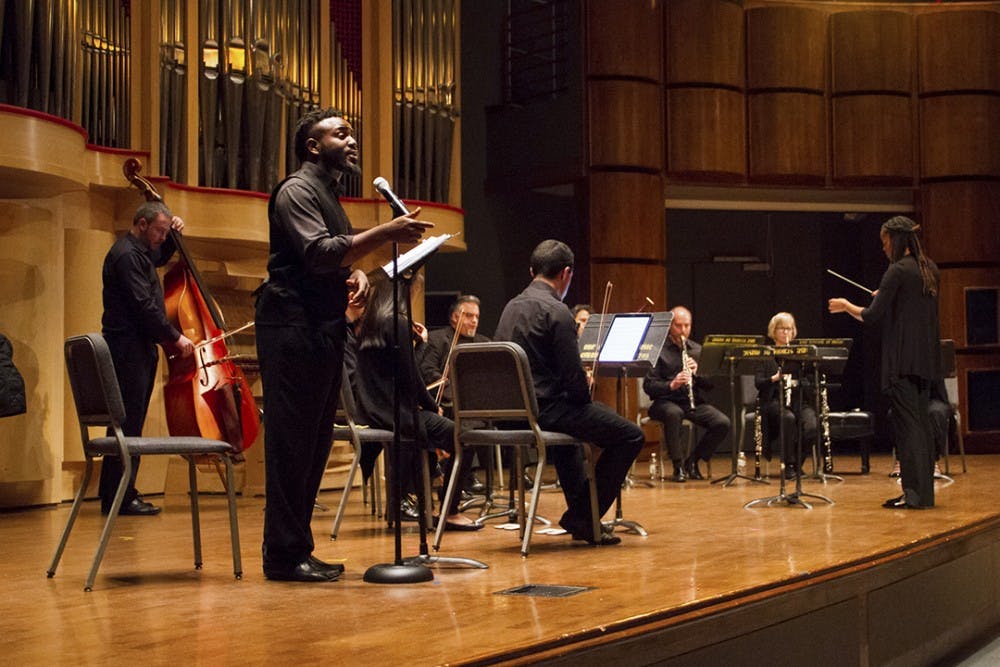In February, a statue was revealed outside the Thomas Cooper Library of Richard T. Greener, USC’s first African-American professor.
To further remember Greener, USC’s School of Music put on a performance that featured faculty and students of the university in a musical tribute.
A Pioneer’s Opus, written by composer Jeff Scott, recognized Greener’s fervency as a pioneer in paving the way for African Americans to succeed in post-reconstruction America. Within his piece, Scott used text from Greener’s article “The Future of the Negro,” Langston Hughes’ poem “Let America Be America Again” and the newly-commissioned poem by Julietta Curenton “Let Liberty Be.”
In addition to the opus, fourth-year music major, Isaiah Hogue, performed in the concert as the narrator of the material and Stanley Brown, a professor in USC’s Department of Theatre and Dance, performed a monologue from the play The White Problem.
Composer Valerie Coleman put together the second piece of the night, which was titled Glory. In five movements, Glory remembers Greener through his passions, conflicts and scholarly pursuits. Within the piece was original text, written by Coleman herself. This piece also featured Hogue as a narrator and singer Kendrick D. Williams.
Both Scott and Coleman’s non-traditional styles of adding text into a musical performance proved to have an impact on the audience.

“I think it makes you really think about the musical context and all of the different historical relevance and everything. said Katie Waters, a first-year music education student. "It gives you kind of a guided pathway to the interpretation of what to think about it,”
Trevor Bullock, a first-year master's student in bassoon performance, was drawn to the concert as his professor, bassoonist Michael Harley, was one of the performers. Bullock found that using text in the performance played an important role in delivering Greener’s story.
“Sometimes music, even though it’s written with a specific purpose or a specific narrative in mind, can sometimes have trouble getting its point across to people who may not be as educated about music,” Bullock said. “I think that there is a place where the libretto for an opera or the words that are written for the poems and for the narrator that they speak, that adds a special effect to music, that makes that point even more bold and even more easily understandable to an audience.”
By using music as the medium of the tribute, the performance allowed members of the audience to connect to who Greener was as a person.
“I think there’s something special about music that many people tend to overlook, especially in today’s time. It’s sort of a different language, a language that reaches everyone in some way better, in my opinion, in a lot of ways, than what words can do in a lot of times,” Bullock said.
At a time of tremendous adversity where African Americans celebrated a number of firsts, Greener is remembered not only for his achievements but for continuing to stand as an advocate for equality.
“I think [the concert] definitely honors him in a very special way,” said Waters. “Music connects all people, and especially, it doesn’t matter what race you are, it connects everybody.”

